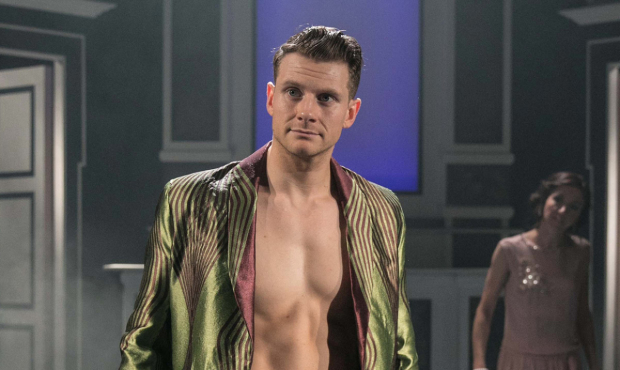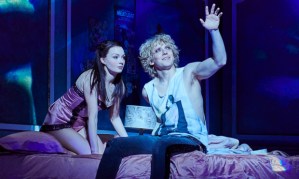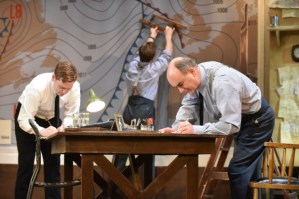Review: The Country Wife (Southwark Playhouse)
William Wycherley’s debauched comedy returns to London

© Darren Bell
It makes a lot of sense to update William Wycherley’s bawdy Restoration comedy to the hedonistic era of the 'Bright Young Things' endlessly discussed in the 1920s tabloid press and immortalised in the writings of Evelyn Waugh and Beverley Nichols. There are easily discernible parallels between the flamboyance, frivolity and sexual progressions of the two eras, the latter perhaps in reaction to the darkness of World War One, and the former a response to the austerity of life under the Puritan regime.
Furthermore, by emphasising the moral and physical emancipation of the female characters in the play, Luke Fredericks’ handsomely mounted production for Morphic Graffiti succeeds in side-stepping some of the unappealingly misogynistic elements of a more traditional reading of this 1675 text. The women here know what they’re worth and what they want – from the deceptively innocent Margery Pinchwife, the ‘country wife’ of the title, to the sexually rapacious Lady Fidget, ardently pursuing priapic anti-hero Horner who in turn purports to have been castrated in order to gain access to Society women. They are driving the story more powerfully than in any other version I’ve seen.
A tumultuously good opening sees the two eras speak to each other as a '20s flapper admires a pair of Restoration-dressed museum mannequins which come to lewd life, before the entire cast dances explosively towards us through the walls of Stewart Charlesworth’s opulent set.
Fine and funny (often uproariously so) as this is, there is a confusion of tone that proves problematic as the evening wears on. At times it’s as though Fredericks and his movement director Heather Douglas want to give us Country Wife – The Musical (something that has already been done, under the none-too-subtle title of Lust, at the Haymarket back in the early '90s). Each of the too-numerous scene changes is accompanied by a dance routine set to vaguely anachronistic music. This feels bracing and novel at first, but eventually gets tiresome and drags an already long evening out to nearly three hours. Act two even opens with an enjoyable, if unexpected, jazzy rendition of Lady Gaga’s "Bad Romance". The dialogue between modernity and the 1920s and back even further is kept up throughout, but not always with as much clarity as one might hope for.
The gear change between high comedy and out-and-out farce feels a little clunky at present, although that may smooth out as the run progresses. There’s a similar lack of consistency to the performances: Richard Clews delivers a lovely bit of classical high comedy acting as the cuckolded Pinchwife while Eddie Eyre’s swaggering, improbably buff Horner feels like a very modern ‘wide boy’ type. Daniel Cane’s screamingly camp society dandy Sparkish – complete with telltale green carnation and about to make an entirely unsuitable marriage to Siubhan Harrison’s exquisite, subtle Alithea – comes on like Oscar Wilde on speed: lots of belly laughs but little finesse. Nancy Sullivan is a sparkling, often hilarious Margery, and Joshua Hill is great fun as Horner’s coke-snorting sidekick.
Each half of the show ends with a newly devised, wordless scene that further points up the already rampant sexuality within the piece…both are amusing but feel superfluous; what Wycherley has written is provocative enough, albeit elegantly so. There is much to enjoy in this production, it’s just a shame that, at present anyway, it doesn’t feel like a cohesive whole. Nonetheless, it’s preferable to experience an adaptation of a classic where the director has a surfeit rather than an absence of interesting ideas, and the former is certainly true of Fredericks’ take on The Country Wife.
The Country Wife runs at Southwark Playhouse until 21 April.

















